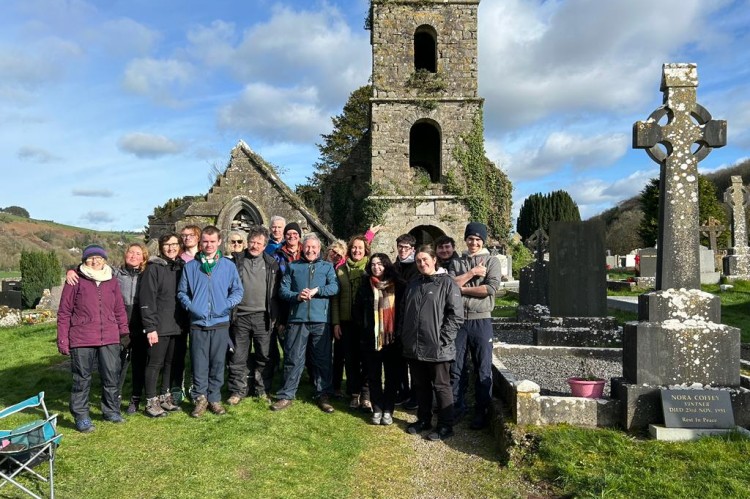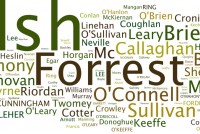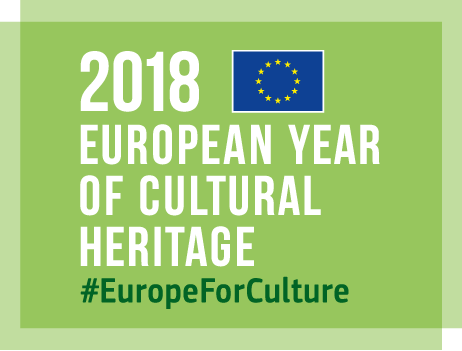Community archaeology is all about relationships. It takes time to build a relationship and effort to maintain it. For a heritage project relationship to work, to sustain, there must be equal benefits for each participant. In graveyard surveys the Historic Graves team look to publish good quality survey data while learning about a new place. Our participating groups look to learn a new skill (graveyard survey) and to do real work. One of the groups we have worked with continually since 2011 is the Cultural and Heritage Studies team in Tramore Road Campus, Cork and together we surveyed two Cork graveyards across a 3-4 week period. The third leg of the stool for these surveys were Cork City Council whose archaeologist, Ciara Brett, arranged access for us to two graveyards under their stewardship.
The students learned our system of number, photo, record sheet for every mortuary monument in Ballintemple and Inniscarra graveyards.
https://historicgraves.com/graveyard/temple-hill-ballintemple/co-tehl
https://historicgraves.com/graveyard/st-senan-s-inniscarra/co-ssin
The class consisted of the usual mix of Tramore Road Campus students. From students who have just left school to many who have retired, are getting back into education, or are recent arrivals to Ireland they all brought a positive attitude to what can be relatively challenging work especially when done in November and January. Combining the benefits of young keen eyesight with the research capabilities and lifetime experience of the older student cohort both surveys resulted in some of the quickest projects we have been involved in. The Historic Graves system usually has the survey data online within days of the survey but full data entry can take weeks if not months to complete. In this case the students had the data entry complete the week after they started each survey. Now we have over 500 headstones online with the associated biographical details and some historical research underway.
Having such a diligent team we took the opportunity of an Incultum.eu grant to test some new methods for our survey system. Since 2021 we have been using iPhones for the survey photographs as we find the accuracy of the alway-on GPS and accelerometer combination gets us more accurate geolocations for each survey photograph. Increased accuracy is a very positive plus for our studies but the iPhone does have filenaming challenges which adversely affect our workflows. In an attempt to overcome these challenges we tested a number of filenaming and filetagging software applications during these surveys. Testing new work systems can be expensive and in this case the tests added another days work to our usual system. Unfortunately the tests did not work out as hoped. The filetagging software did work for labelling each survey photo but in each case it resulted in a deterioration in the quality of the GPS locations.
The Incultum project allows us to test new systems and software but it also allows us to take a broader, European, view of grassroots heritage projects. A key learning has been about the relationships that we mentioned earlier. Sustainable relationships need sustainable resourcing. From a professional heritage perspective sustainable resources are crucial to how we support community groups and right now, in 2023, we're not quite there. Our project is small and with a tight team who have worked together for over 20 years but for the project to persist into the future we need to think about resources.
Thanks to Ciara Brett of Cork City Council, Shane Lehane of Tramore Road Campus, and to all of the students who participated in the survey work and helped us refine our systems.




